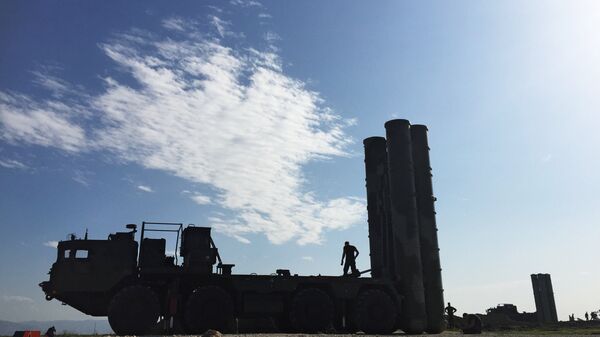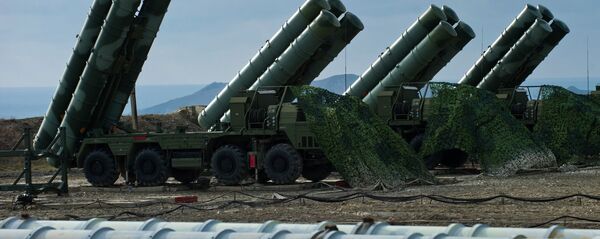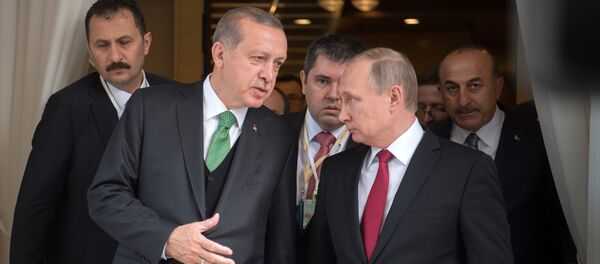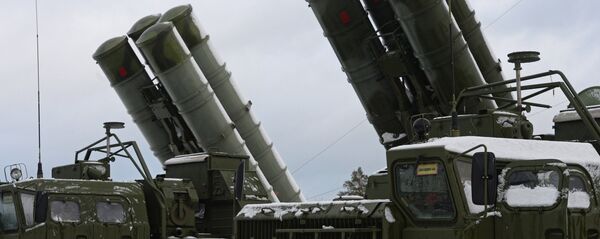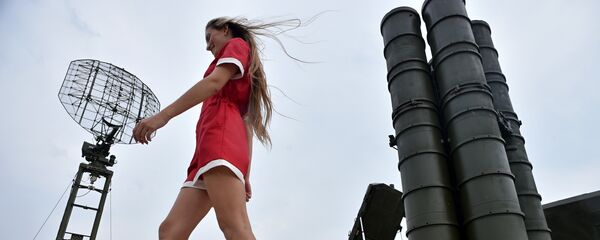Chances are high that Turkey might become the first NATO member state to operate Russia's S-300 system, while a number of other countries, such as Romania, Bulgaria, Greece and Germany have in their possession Russia's S-200 and S-300 complexes.
Commenting on the results of the talks, Western mainstream media was clearly alarmed by the prospect of this happening.
"Turkey and Russia cosy up over missiles. Their friendship should worry NATO," read the article in The Economist on the next day after the talks.
"The attempt to find some common ground over Syria dominated the talks on May 3rd between Recep Tayyip Erdogan and Vladimir Putin. But the meeting between the Turkish and Russian presidents also touched on another subject of concern to Turkey’s NATO allies. A deal has been agreed in principle for Russia to sell Turkey its potent S-400 long-range air-defense system. A price has yet to be agreed. But as both strongmen have shown with their steady reconciliation over the past year, enough political will can make most plans lift off," it said.
"At a time when tensions between NATO and Russia are at their highest since the cold war, the purchase, if it goes ahead, will be seen as a calculated snub to the alliance. It will also confirm the impression of recent years that Mr Erdogan is happy for Turkey to become, in effect, a semi-detached member of NATO," it further explained.
BBC Turkey noted that the possible deal highlights the issue of data sharing between Turkey and Russia and "a number of other debates," such as an integration of Russian systems into NATO-standard air defense system.
Turkish political and military analysts however told Sputnik that NATO "should be glad, not alarmed" by the possible deal.
"Some NATO member states are concerned about the possible leak of secret information into Russia. However such countries as Bulgaria, Greece and Hungary have already been operating these systems. The systems they are currently operating are being used by NATO. It means there is no problem of ‘integration’ which many experts have been talking about," the political analyst told Sputnik.
"Instead of worrying, NATO should be glad, as the development of Turkey's defense system indirectly facilitates the development of the security system of the Alliance as a whole," he added.
Casın also stressed that Turkey is a sovereign state and has every right to purchase weapons wherever it wants.
"Since the 1950s, Russia has been accumulating significant experience around missile complexes of low-, medium- and high-altitude interception. S-400 is a state-of-the-art system. The purchase of such a system will be of great benefit to Turkey, which is fighting against Daesh, who are threatening Turkish people," he explained.
This system, he said, won't be used against NATO, on the contrary, it will be used as a deterrent against any possible threats it might face.
The deal, he said, will also contribute to the strengthening of relations between Russia and Turkey.
"Since 1991, the cooperation between Turkey and Russia has been based on trust. Turkey has been trusting Russia militarily. According to the Montreux Convention Regarding the Regime of the Straits, the security in the Black Sea is being controlled by these two countries. Additionally, Russian-Turkish diplomacy and personal efforts of Presidents Putin and Erdogan are playing a vital role in security of the Eastern Mediterranean and the settlement of the Syrian bloody conflict," he said.
In a separate comment on the issue, retired Turkish Lieutenant General Erdogan Karakus told Sputnik that thus Turkey is trying to defend itself while staying independent from NATO.
The retired Lieutenant General also suggested that there will be a certain balancing act between NATO and Russia.
Turkey, he said, might fully satisfy its needs by purchasing either the S-400 from Russia or the Patriot system from the US. It might also balance between the two. The Alliance however wants to sell 12 Patriot systems to Turkey, worth $300 billion and does not want to lose its captive buyer. As it does not want to cut the number of systems for deployment, it will further insist on its deliveries and object to the purchase of the Russian systems, he finally stated.

